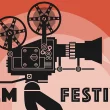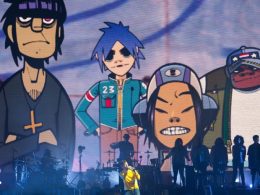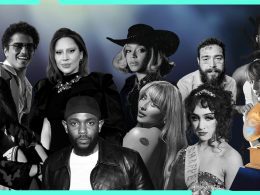Introduction
In the digital age, internet memes have become a ubiquitous part of our daily lives. These often humorous, rapidly shared images, videos, and text snippets have evolved far beyond simple online jokes. They now hold significant sway over entertainment trends, influencing everything from television shows and movies to music and social media content. This article delves into the profound influence of internet memes on the entertainment industry, examining their origins, evolution, and far-reaching impact.
The Evolution of Internet Memes

Internet memes started as light-hearted jokes on early online forums, but over time, they’ve evolved into a core aspect of internet culture. The spread of memes has accelerated due to platforms like Reddit, Twitter, and Instagram, where users can rapidly share and remix content. The essence of memes lies in their adaptability—they are reflections of collective humor, opinions, and reactions to cultural moments.
Initially, memes were seen as a niche form of entertainment. Today, they are a cultural currency that transcends borders, helping to connect people globally with shared experiences and jokes. As a result, memes are now an integral part of the broader entertainment ecosystem.
-
Origins and Early Examples
Internet memes trace their roots back to the early days of the internet. The term “meme” itself was coined by Richard Dawkins in his 1976 book “The Selfish Gene,” referring to an idea, behavior, or style that spreads from person to person within a culture. However, the concept took on a new life with the advent of the internet. Early examples include the “Dancing Baby” and “All Your Base Are Belong to Us,” which gained viral status in the late 1990s and early 2000s.
-
The Rise of Social Media
The proliferation of social media platforms like Facebook, Twitter, and Instagram in the mid-2000s accelerated the spread of memes. These platforms provided fertile ground for the rapid dissemination and evolution of memes, allowing them to reach a global audience almost instantaneously. Memes became a form of social currency, a way for users to connect, communicate, and comment on current events and popular culture.
How Memes Shape TV, Movies, and Music
Internet memes have influenced mainstream entertainment significantly, particularly in television and film. Memes often dictate what content goes viral, providing a crucial indicator of what audiences find engaging or relatable. For instance, the viral popularity of “The Office” memes helped revive interest in the show years after its finale, prompting new waves of streaming.
Similarly, movie studios have begun to capitalize on meme culture. Films like Shrek and The SpongeBob SquarePants Movie have seen renewed attention because of the endless stream of meme content created by fans. These memes offer free promotion and can reinvigorate a movie’s legacy or even inspire sequel developments.
In the music industry, memes have played an integral role in skyrocketing certain songs to viral fame. TikTok challenges and viral dance moves, such as the one associated with Lil Nas X’s “Old Town Road,” have become pivotal in breaking new music. A song’s success can now heavily depend on its “meme-ability.”
Memes as Catalysts for Entertainment Trends

-
Shaping Television and Film
Internet memes have had a noticeable impact on television and film. Memes often reflect and amplify audience reactions, influencing the popularity and longevity of shows and movies. For instance, the success of the TV show “Rick and Morty” can be partly attributed to the meme culture surrounding it. Memes featuring characters and catchphrases from the show have kept it in the public eye, driving viewership and fan engagement.
Similarly, movies like “Shrek” and “The Room” have enjoyed renewed popularity due to their meme status. “Shrek” memes have turned the film into a cultural phenomenon long after its initial release, while “The Room” has become a cult classic, with its notoriety fueled by internet memes highlighting its so-bad-it’s-good appeal.
-
Influencing Music and Artists
The music industry has also felt the influence of internet memes. Memes can propel songs and artists to viral fame, often in unexpected ways. The song “Old Town Road” by Lil Nas X is a prime example. Initially gaining traction on the video-sharing app TikTok through a meme challenge, the song went on to top the Billboard charts and become a cultural sensation.
Artists themselves often engage with meme culture to boost their popularity. Musicians like Doja Cat and Lil Nas X actively participate in meme trends, leveraging the viral nature of memes to promote their music and connect with fans.
Memes as Marketing Tools in Entertainment
Brands and entertainment companies have begun to harness the power of internet memes for marketing purposes. In an era where social media engagement dictates a brand’s visibility, companies are relying on meme marketing to create viral buzz around their products. Streaming services, movie studios, and record labels now create meme campaigns designed to engage audiences in an authentic, relatable way.
For instance, Netflix has used meme accounts on Twitter and Instagram to engage its audience with humorous content centered on its shows and movies. This casual, informal approach helps maintain brand awareness and builds an organic fanbase for future releases.
Memes and the Evolution of Humor

-
Redefining Comedy
Internet memes have redefined humor for the digital age. Traditional forms of comedy, such as stand-up and sitcoms, have been supplemented by the rapid-fire, often absurdist humor of memes. This new form of comedy is characterized by its brevity, relatability, and ability to comment on contemporary issues in a digestible format.
-
The Role of Irony and Satire
Irony and satire play significant roles in meme culture. Memes often use irony to comment on societal norms, politics, and everyday life. This form of humor resonates with younger audiences, who appreciate the layered meanings and cultural references embedded in memes. Satirical memes, in particular, have become a powerful tool for social and political commentary, influencing public opinion and discourse.
The Business of Memes

-
Marketing and Advertising
Businesses have recognized the potential of memes as marketing tools. Brands increasingly use memes to engage with audiences, create buzz, and promote products. Memes offer a way to connect with consumers on a more personal level, using humor and relatability to foster brand loyalty. Successful meme marketing campaigns can generate significant attention and drive sales, as seen with brands like Wendy’s and Old Spice.
-
Monetizing Memes
Content creators and influencers can earn revenue through sponsored posts, merchandise, and partnerships. Platforms like Patreon and Ko-fi allow meme creators to receive financial support from fans, turning their passion for meme-making into a sustainable career.
The Future of Internet Memes in Entertainment
The relationship between internet memes and entertainment trends is continually evolving. As more platforms for content creation emerge and user-generated media continues to dominate, memes are likely to have an even greater influence on entertainment trends.
Looking ahead, meme culture could become even more intertwined with professional entertainment production. Creators may use meme trends to gauge audience tastes and preferences, tailoring their projects accordingly. Studios may also explore new ways to incorporate meme-friendly elements into scripts, soundtracks, and marketing campaigns.
Analysis of Internet Memes’ Influence on Entertainment
| Area of Influence | Impact of Memes |
|---|---|
| TV & Movies | Revitalizes old shows and films; provides free promotion through viral content. |
| Music | Amplifies songs through viral challenges and memeability, driving streaming success. |
| Marketing | Engages audiences in a relatable, humorous way, creating organic promotion. |
| Social Media | Serves as the primary platform for meme creation, adaptation, and distribution. |
| Comedy & Satire | Provides comedians with relatable content for satire and humor, keeping their work relevant. |
Comparative Table: Memes’ Influence on Various Entertainment Sectors
| Entertainment Sector | Traditional Promotion | Influence of Memes |
|---|---|---|
| Television & Movies | Trailers, TV spots, celebrity interviews | Memes bring shows and films back into public conversation long after release. |
| Music | Radio airplay, music videos | Viral TikTok dances and audio memes make songs popular across generations. |
| Marketing & Branding | Billboards, social media ads | Meme campaigns boost audience engagement in an authentic, engaging way. |
| Comedy | Stand-up specials, TV shows | Memes provide a fresh and immediate way to react to current events humorously. |
Conclusion
Internet memes have undeniably influenced entertainment trends, reshaping how we consume and engage with media. From television and film to music and marketing, memes have left an indelible mark on the entertainment industry. As memes continue to evolve, their impact on popular culture and entertainment will likely grow, reflecting the ever-changing landscape of the digital age.By understanding the influence of internet memes, we gain insight into the dynamic interplay between digital culture and entertainment, highlighting the power of humor and relatability in shaping our collective experiences.












